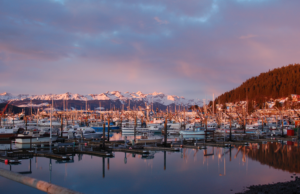Community Corner
By Lisa Matlock, Outreach Coordinator

Until 2010, the 1989 Exxon Valdez oil spill was the largest oil spill disaster in U.S. waters. That March, people around the world turned on the news to see our devastated wildlife and beaches. No one doubted that the environment of Prince William Sound and other downstream areas were hurt. What was not apparent to almost everyone was the short and long term damage to the people in the region’s communities.
Technological disasters, such as an oil or chemical spill, a nuclear accident, or a large building fire or collapse, affect communities differently than natural disasters. A technological disaster is caused by humans, and there is a person or persons who can be blamed for the incident. Natural disasters have no one to blame. Natural disasters, such as floods, hurricanes, and earthquakes, can often be predicted and prepared for. Technological disasters are often unexpected.
After the Exxon Valdez spill, the council funded research on how technological disasters affect people living in the area compared to natural disasters.